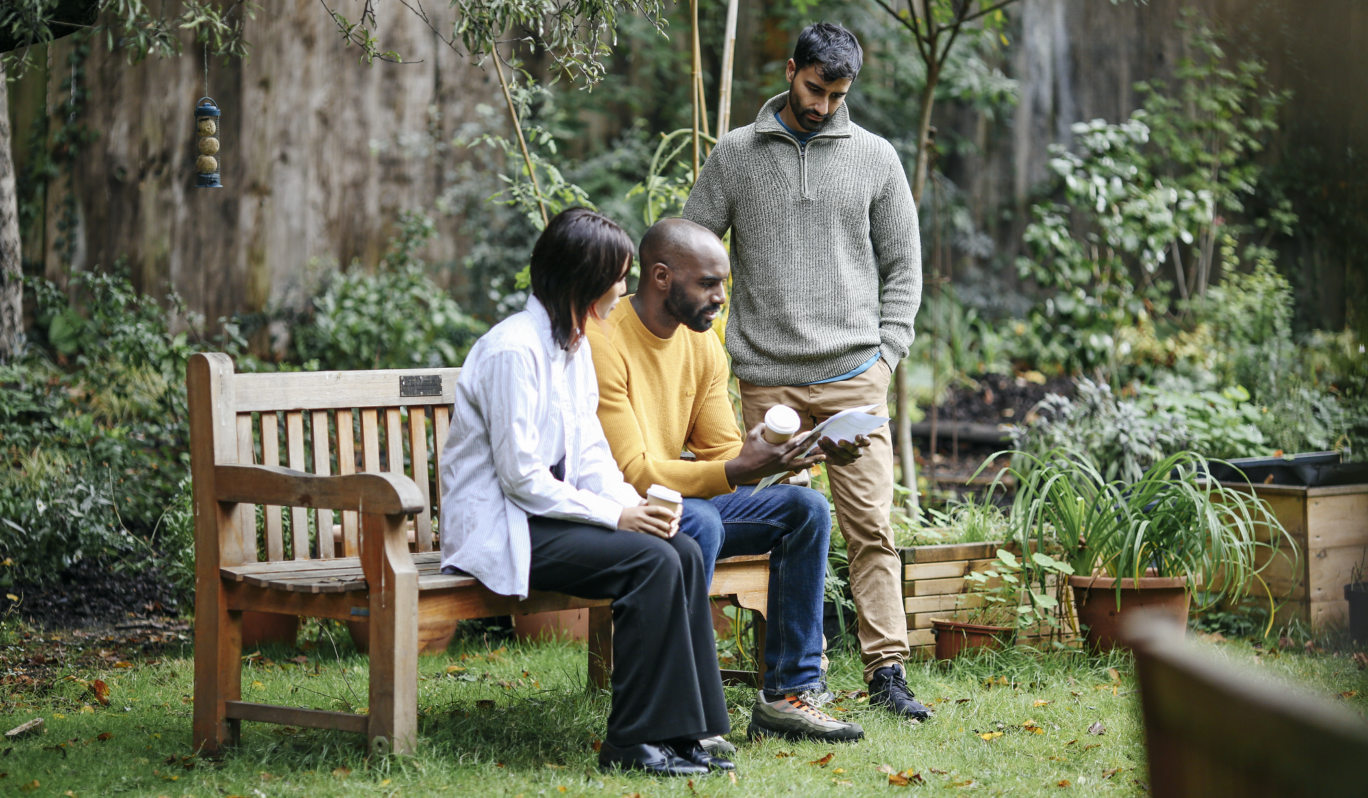
New postgraduate training from our award-winning trauma service
Our new, post-qualification training for psychotherapists and psychoanalysts is open for applications for September 2024.
Now recruiting for September 2024, Complex trauma: the Tavistock model (D19) is an innovative clinical training for qualified psychotherapists looking to specialise in trauma work. Comprising a clinical placement and rigorous academic programme, the new course has been developed by Dr Joanne Stubley, lead clinician in the award-winning Tavistock trauma service.
The trauma service has a long history of inviting honorary therapists to work alongside members of its clinical team – learning from their distinctive, multi-modal approach. “At any given point in the last few years, we have had between twenty to thirty qualified therapists working in this way,” explains Jo. “My impression has always been that no matter what their level of training, practitioners often find they do not have expertise in working with traumatised individuals and are interested in the particular model we have developed here at the Tavistock and Portman.”
Now, in creating a formal training programme, Jo hopes to be able to offer participants a more “full” and “supported” learning experience – in which the clinical placement at the heart of the course is further enhanced by weekly supervision, experiential groups and lectures.
“There has been an explosion of research and understanding in the field of trauma in the last twenty years,” explains Jo. “Within the service, we draw on different modalities and perspectives to understand our patients, but always within a psychoanalytic frame. I wanted to create a course that was current, inclusive, and drew on the wealth of experience available across the Tavistock and Portman and beyond.” The D19 academic programme will be structured in flexible modules – some compulsory and some elective – so that participants can follow their special interests. “I believe this will be unique in trauma trainings in the UK”, she adds.

Another important component of the course will be the opportunities for participants to reflect together on the nature and complexity of their work. “We have long recognised that powerful countertransference experiences are very common in trauma work”, explains Jo. “Indeed, the one-year course which we ran for many years for a variety of professionals saw that attending to these experiences was paramount. So, we have replicated this in our new course by providing a weekly experiential group, as well as regular group supervision sessions”.
When it comes to the clinical placement, Jo’s aim is to identify those areas of the trauma service that best fit each participant’s interests: “For instance, we have a specialist arm of the service for non-recent child sexual abuse, if that is an area of interest, and we also work with racial trauma, dissociative identity disorder, survivors of human trafficking and torture. We have art therapy, yoga groups for trauma, a gardening group, and we are developing expertise in trauma mentalisation based group therapy. And for those trained in eye movement desensitization and reprocessing (EMDR), we offer external supervision for EMDR cases.”
Open to accredited psychodynamic and psychoanalytic psychotherapists and psychoanalysts, working across statutory, voluntary and private sectors, Complex trauma: the Tavistock model (D19) is currently accepting applicants for a September 2024 start. We anticipate that the course will be recognised by the British Psychoanalytic Council (BPC) with the award of a ‘kite mark’ following their accreditation process.
Intrigued? Learn more
Combining a clinical placement with a rigorous academic programme, Complex trauma: the Tavistock model (D19) has been developed to support qualified psychotherapists and psychoanalysts who wish to specialise in trauma work.